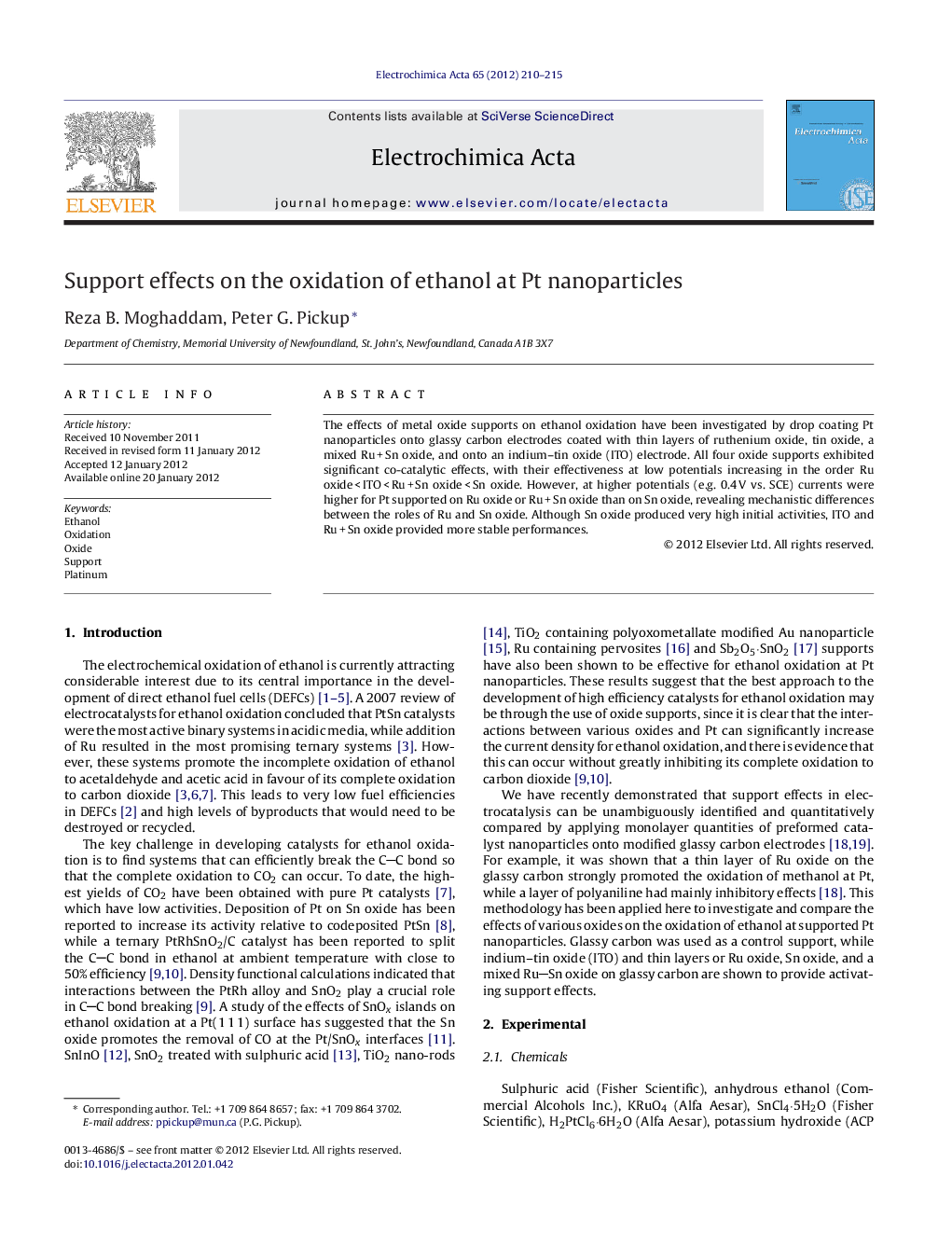| Article ID | Journal | Published Year | Pages | File Type |
|---|---|---|---|---|
| 188860 | Electrochimica Acta | 2012 | 6 Pages |
The effects of metal oxide supports on ethanol oxidation have been investigated by drop coating Pt nanoparticles onto glassy carbon electrodes coated with thin layers of ruthenium oxide, tin oxide, a mixed Ru + Sn oxide, and onto an indium–tin oxide (ITO) electrode. All four oxide supports exhibited significant co-catalytic effects, with their effectiveness at low potentials increasing in the order Ru oxide < ITO < Ru + Sn oxide < Sn oxide. However, at higher potentials (e.g. 0.4 V vs. SCE) currents were higher for Pt supported on Ru oxide or Ru + Sn oxide than on Sn oxide, revealing mechanistic differences between the roles of Ru and Sn oxide. Although Sn oxide produced very high initial activities, ITO and Ru + Sn oxide provided more stable performances.
Graphical abstractFigure optionsDownload full-size imageDownload as PowerPoint slideHighlights► Ethanol oxidation at Pt nanoparticles is strongly promoted by contact with oxides containing Sn. ► Pure Sn oxide films provide the highest initial activities. ► Mixed RuSn and InSn oxides provide better long term performances. ► Comparisons between the effects of Sn and Ru oxide films reveal differences in their mechanistic roles.
